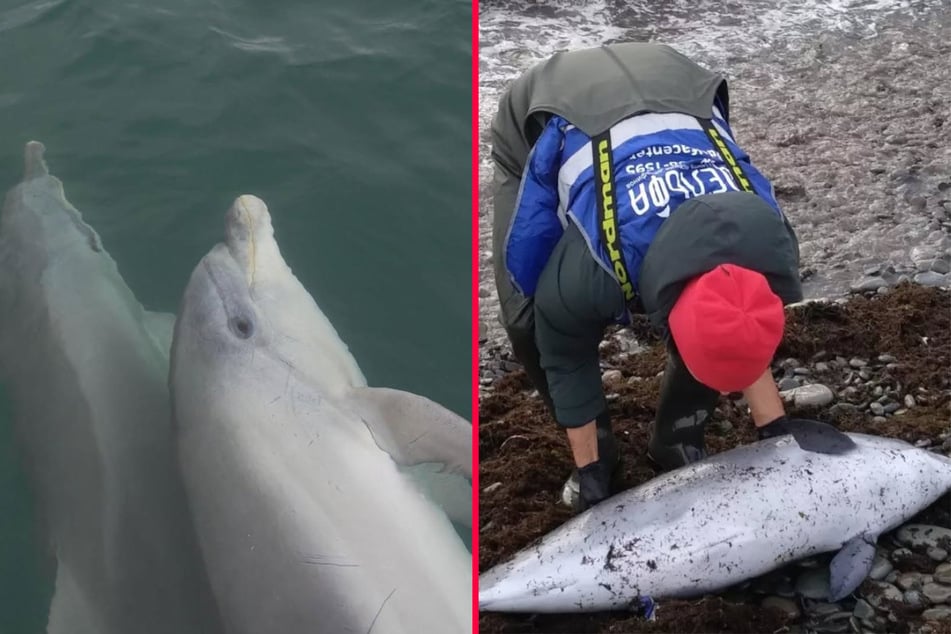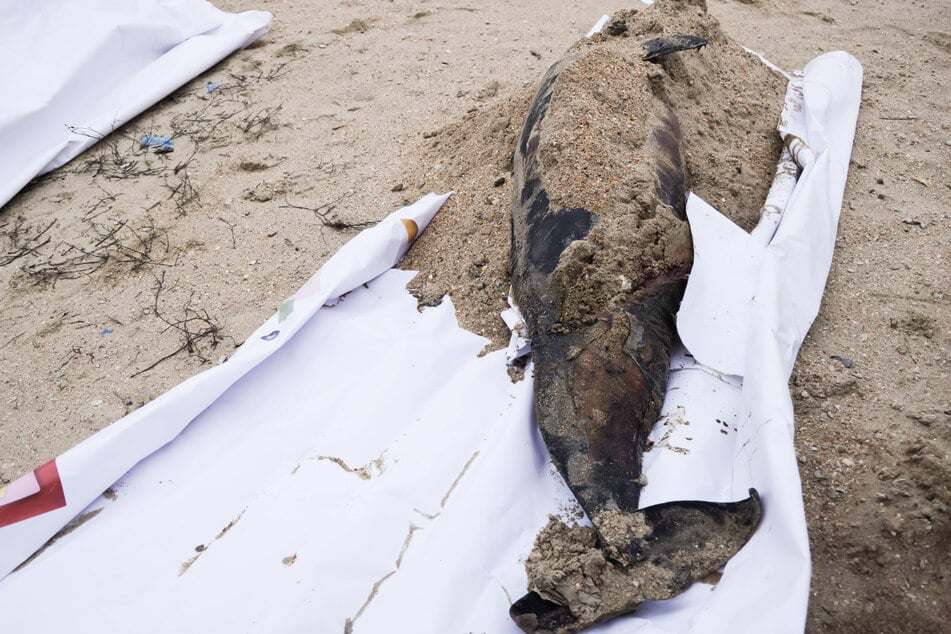Russian tanker crash causes devastating dolphin deaths
Increasing numbers of dead dolphins are washing up along the shores of the Black Sea after two Russian oil tankers collided in the Kerch Strait last month.

At least 32 animals are believed to have died due to the spillage of heavy oil in the sea, with many more likely to die over the coming days and weeks.
The spill was caused when two Russian tankers carrying more than 9,000 tons of oil crashed during a storm, causing the death of one crew member.
Russian environment group Delfa has been documenting the "atypically high" number of deaths and sharing their findings on Telegram and Instagram.
In a post on Sunday, representatives of Delfa said in a statement on Instagram in which they confirmed that at least 32 deaths were directly linked to the diesel spill, with a total of 61 dolphins found, mostly of the Azov subspecies.
"Almost every day, we receive information about new deceased dolphins, we keep records and regularly transfer the data to government authorities," the organization said in a statement which has been translated from Russian.
According to Delfa, most of the animals being found washed up on beaches in early January likely died in the ten days immediately after the spill and have only washed up now.
Russian oil spill an "ecological disaster" for vulnerable dolphins

Since the spillage in December, oil has been washing up on the beaches of the southern Russian region of Krasnodar as well as on the Crimean Peninsula. It resulted in the declaration of a state of emergency by the Russian government.
Thousands of volunteers are working hard to not only clean up the spillage itself, but rescue and help wildlife that has been directly impacted by the emergency.
While environmental activists are concerned due to the dolphins' endangered status, some are warning that damage will not just be direct, but will be through the food chain as well.
"Dolphins are at the top of the food chain, so this disaster will affect them greatly over time," said activist and freediver Oxana Fedorova, who goes by the moniker 'Dolphin Girl' online.
According to Fedorova, it is likely that we will see increasing fatalities and sickness in Spring, as outbreaks of viruses and infections emerge as a result of the oil, as well as the dolphin's consumption of contaminated fish.
More than 40 miles of coastline has been cleaned up, Russia's Emergencies Ministry said on Sunday. In a subsequent statement cited by CBS, however, they revealed that two new oil slicks had been discovered.
Cover photo: Collage: Screenshots/Instagram/@delfacenter

